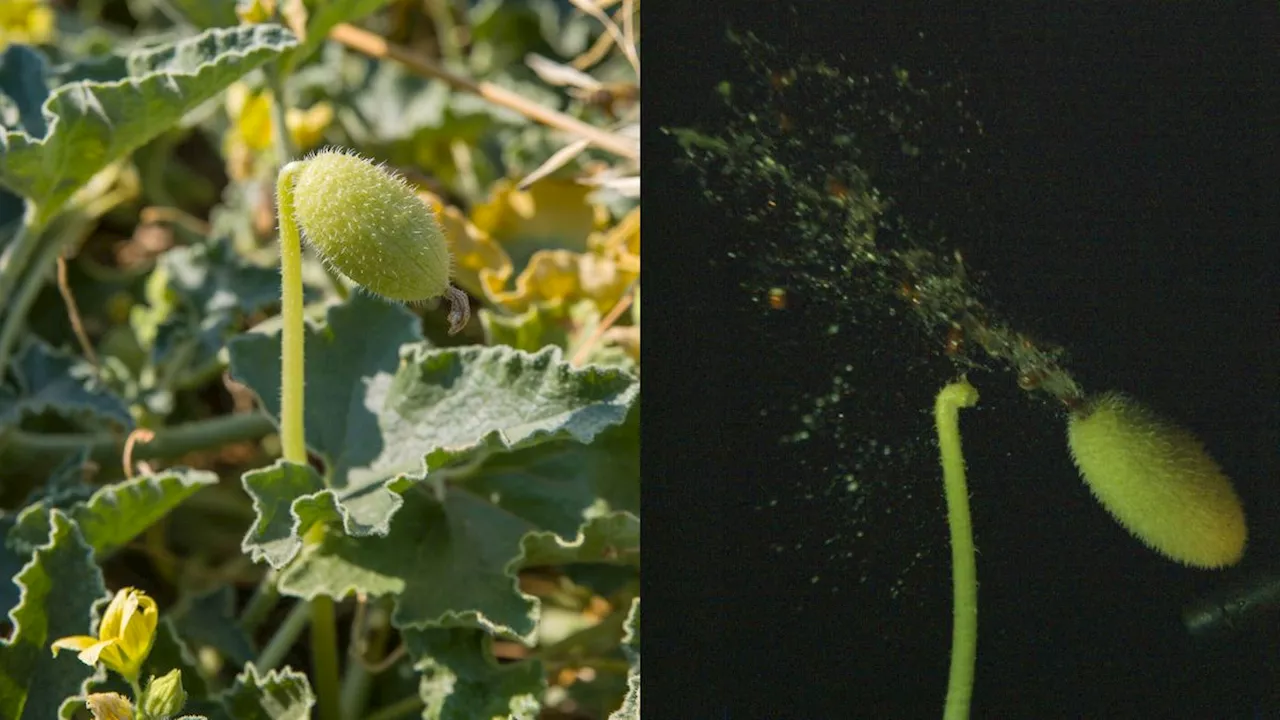Sascha is a U.K.-based trainee staff writer at Live Science. She holds a bachelor’s degree in biology from the University of Southampton in England and a master’s degree in science communication from Imperial College London. Her work has appeared in The Guardian and the health website Zoe.
Squirting cucumbers are named after the way they expel their seeds in a violent jet of liquid — and now, scientists have finally unlocked the mysterious mechanics of these explosive launches.
The team also measured the volume of the cucumbers and stems before and after the plants released their seeds. The researchers then fed these data into mathematical models to map the mechanics and trajectories of the seed ejections. By submitting your information you agree to the Terms & Conditions and Privacy Policy and are aged 16 or over.The results, published Monday in the journal PNAS, reveal for the first time how squirting cucumbers expel their seeds"with remarkable speed and precision," study co-author Finn Box, a research fellow in the Physics of Fluid & Soft Matter group at the University of Manchester in the U.K., said in a separate statement.
Microseconds before the seed launch, the tip of the stem recoils away from the cucumbers, causing them to rotate as they catapult off. As a result of this twisting motion, squirting cucumbers can throw seeds up to 33 feet away from the mother plant at speeds of 66 feet per second .—Lost biblical tree resurrected from 1,000-year-old mystery seed found in the Judaean Desert"The explosive launch of the cucumber plant has evolved over generations to help it survive," Box said.
United States Latest News, United States Headlines
Similar News:You can also read news stories similar to this one that we have collected from other news sources.
 New memory chip controlled by light and magnets could one day make AI computing less power-hungrySkyler Ware is a freelance science journalist covering chemistry, biology, paleontology and Earth science. She was a 2023 AAAS Mass Media Science and Engineering Fellow at Science News. Her work has also appeared in Science News Explores, ZME Science and Chembites, among others. Skyler has a Ph.D. in chemistry from Caltech.
New memory chip controlled by light and magnets could one day make AI computing less power-hungrySkyler Ware is a freelance science journalist covering chemistry, biology, paleontology and Earth science. She was a 2023 AAAS Mass Media Science and Engineering Fellow at Science News. Her work has also appeared in Science News Explores, ZME Science and Chembites, among others. Skyler has a Ph.D. in chemistry from Caltech.
Read more »
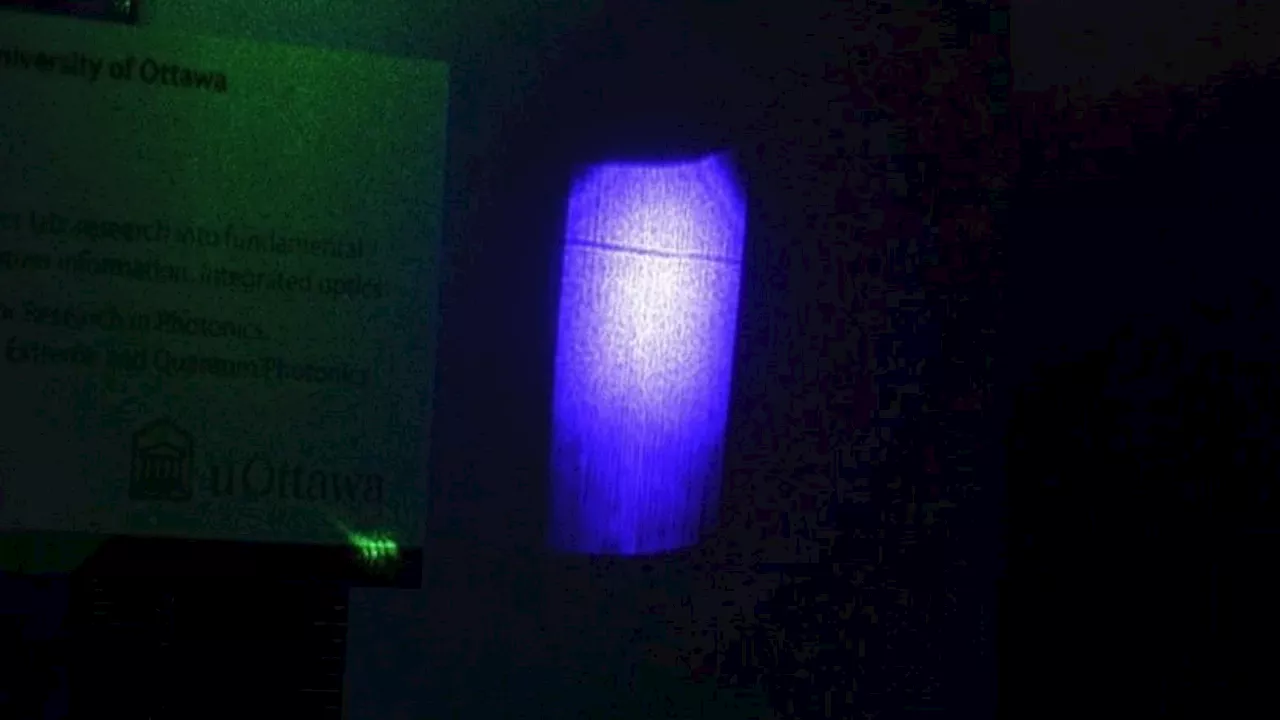 'It invites us to reconsider our notion of shadow': Laser beams can actually cast their own shadows, scientists discoverSkyler Ware is a freelance science journalist covering chemistry, biology, paleontology and Earth science. She was a 2023 AAAS Mass Media Science and Engineering Fellow at Science News. Her work has also appeared in Science News Explores, ZME Science and Chembites, among others. Skyler has a Ph.D. in chemistry from Caltech.
'It invites us to reconsider our notion of shadow': Laser beams can actually cast their own shadows, scientists discoverSkyler Ware is a freelance science journalist covering chemistry, biology, paleontology and Earth science. She was a 2023 AAAS Mass Media Science and Engineering Fellow at Science News. Her work has also appeared in Science News Explores, ZME Science and Chembites, among others. Skyler has a Ph.D. in chemistry from Caltech.
Read more »
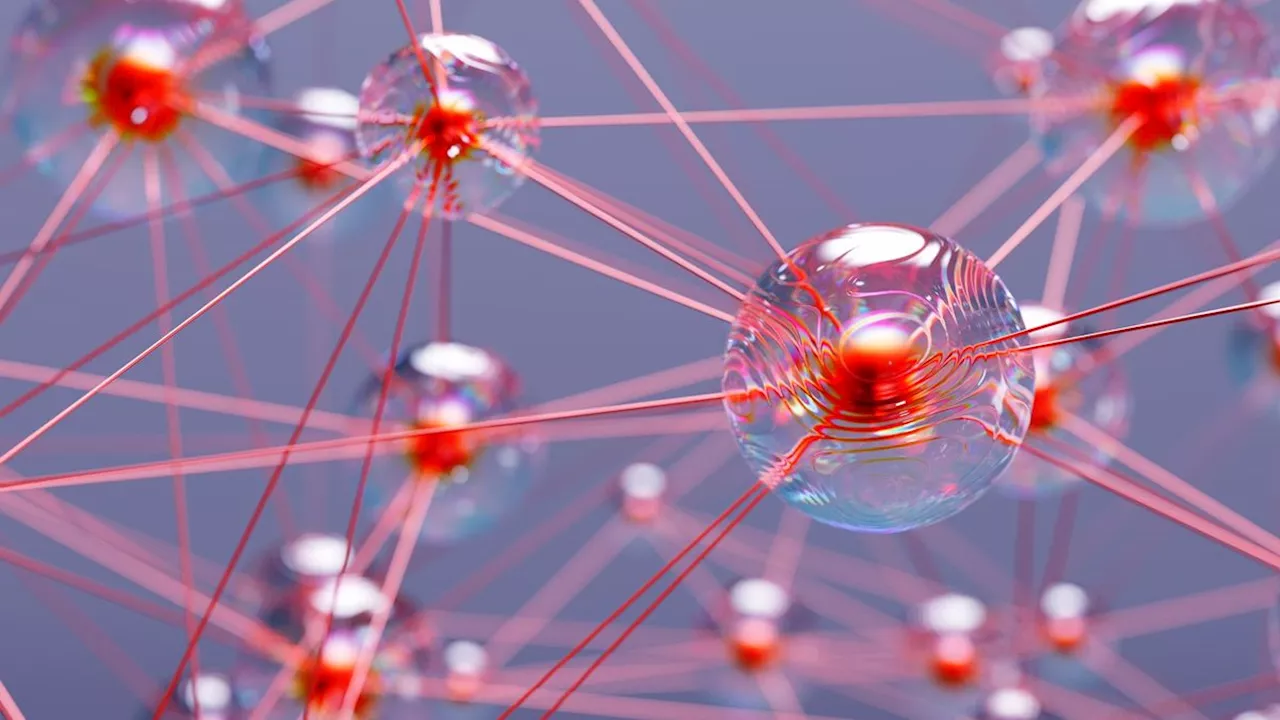 Chemists broke a 100-year-old rule to make extremely unstable moleculesSkyler Ware is a freelance science journalist covering chemistry, biology, paleontology and Earth science. She was a 2023 AAAS Mass Media Science and Engineering Fellow at Science News. Her work has also appeared in Science News Explores, ZME Science and Chembites, among others. Skyler has a Ph.D. in chemistry from Caltech.
Chemists broke a 100-year-old rule to make extremely unstable moleculesSkyler Ware is a freelance science journalist covering chemistry, biology, paleontology and Earth science. She was a 2023 AAAS Mass Media Science and Engineering Fellow at Science News. Her work has also appeared in Science News Explores, ZME Science and Chembites, among others. Skyler has a Ph.D. in chemistry from Caltech.
Read more »
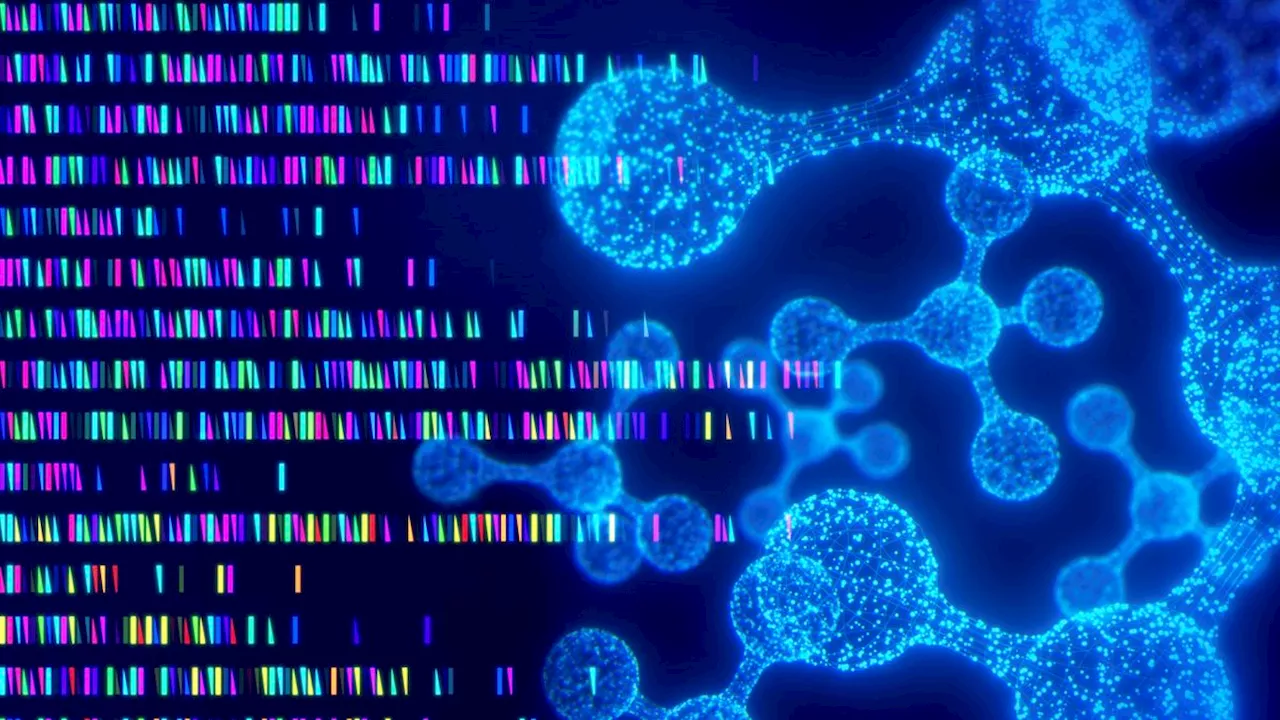 Meet Evo, an AI model that can predict the effects of gene mutations with 'unparalleled accuracy'Skyler Ware is a freelance science journalist covering chemistry, biology, paleontology and Earth science. She was a 2023 AAAS Mass Media Science and Engineering Fellow at Science News. Her work has also appeared in Science News Explores, ZME Science and Chembites, among others. Skyler has a Ph.D. in chemistry from Caltech.
Meet Evo, an AI model that can predict the effects of gene mutations with 'unparalleled accuracy'Skyler Ware is a freelance science journalist covering chemistry, biology, paleontology and Earth science. She was a 2023 AAAS Mass Media Science and Engineering Fellow at Science News. Her work has also appeared in Science News Explores, ZME Science and Chembites, among others. Skyler has a Ph.D. in chemistry from Caltech.
Read more »
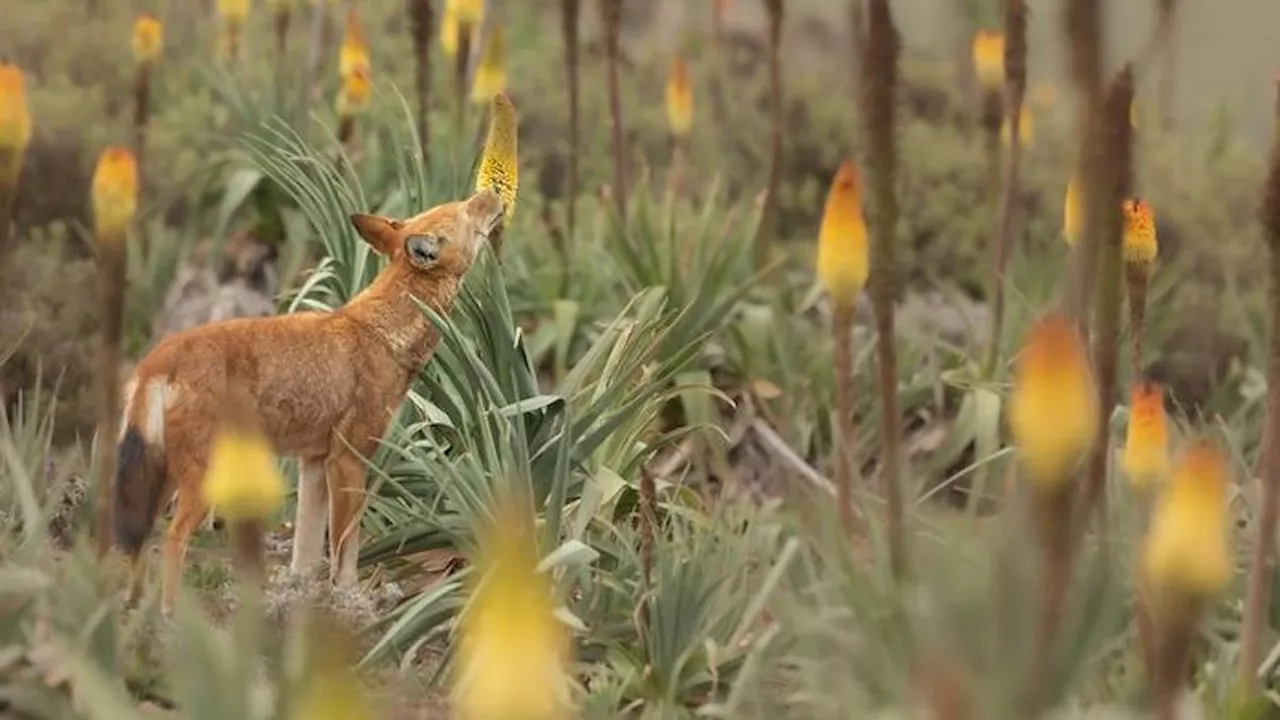 Wolves in Ethiopia spotted licking 'red hot poker' flowers like lollipopsSkyler Ware is a freelance science journalist covering chemistry, biology, paleontology and Earth science. She was a 2023 AAAS Mass Media Science and Engineering Fellow at Science News. Her work has also appeared in Science News Explores, ZME Science and Chembites, among others. Skyler has a Ph.D. in chemistry from Caltech.
Wolves in Ethiopia spotted licking 'red hot poker' flowers like lollipopsSkyler Ware is a freelance science journalist covering chemistry, biology, paleontology and Earth science. She was a 2023 AAAS Mass Media Science and Engineering Fellow at Science News. Her work has also appeared in Science News Explores, ZME Science and Chembites, among others. Skyler has a Ph.D. in chemistry from Caltech.
Read more »
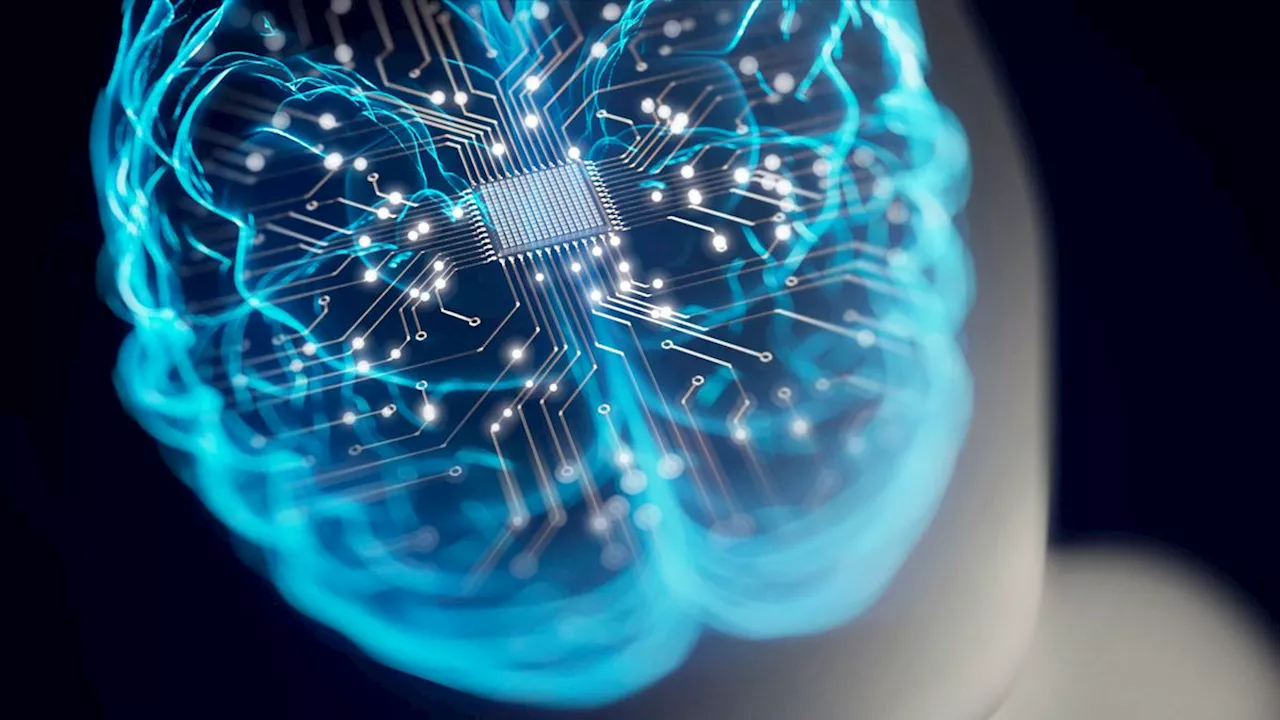 'Edge of chaos' neuroscience theory could lead to superfast computing chips that behave like superconductorsSkyler Ware is a freelance science journalist covering chemistry, biology, paleontology and Earth science. She was a 2023 AAAS Mass Media Science and Engineering Fellow at Science News. Her work has also appeared in Science News Explores, ZME Science and Chembites, among others. Skyler has a Ph.D. in chemistry from Caltech.
'Edge of chaos' neuroscience theory could lead to superfast computing chips that behave like superconductorsSkyler Ware is a freelance science journalist covering chemistry, biology, paleontology and Earth science. She was a 2023 AAAS Mass Media Science and Engineering Fellow at Science News. Her work has also appeared in Science News Explores, ZME Science and Chembites, among others. Skyler has a Ph.D. in chemistry from Caltech.
Read more »
